If you are short on power outlets and think you can plug the refrigerator into an extension cord, think again. It has to run 24/7 and may draw up to 15A of current. So, can you use an extension cord for a refrigerator? No, using an extension cord for an extended time is not recommended, as it may lead to overheating, appliance damage, or even fire hazards.
While using an extension cord with a higher amperage and thicker cord (10AWG) may work, it can still be risky. Instead of using an extension cord, a solar generator can bypass the need for one. Jackery Solar Generator is a portable, essential home backup that can power your refrigerator anywhere without an extension cord. Read ahead to learn about safer alternatives to an extension cord for a fridge.
Key Takeaways
- An extension cord for a refrigerator cannot be used permanently. It can only be used temporarily under certain conditions.
- The ideal extension cord gauge for a refrigerator is 14AWG to 10AWG.
- Always use a 3-prong plug and a 3-wire extension cord that is 25-50 feet in length for a refrigerator.
- Jackery Solar Generator can power your refrigerator directly without any extension cord.
Can You Use Any Extension Cord for a Refrigerator?
According to the United States Fire Administration, you should never use an extension cord with major appliances, such as refrigerators, stoves, washers, etc. Extension cords are only for temporary use (a few hours), whereas your refrigerator must run 24/7.
There are three types of extension cords:
- Heavy-Duty Extension Cords: If you use a heavy-duty extension cord with a gauge of 12AWG to 10AWG and an amperage of 20A to 30A, you may be able to run the refrigerator, but there is a risk considering the long-term usage.
- Medium-Duty Extension Cords: A medium-duty extension cord with a gauge of 14AWG and an amperage of 10A may be used for a refrigerator with medium power requirements (800W).
- Light-Duty Extension Cords: A light-duty extension cord with a gauge of 16AWG or 18AWG has an amperage of 7A or less. This cord is suitable for a mini-fridge with a wattage of 50W to 100W. However, as mentioned, there can be risks with long-term use.
A refrigerator's surge wattage is higher than its operating wattage. Therefore, the surge amperage should also be considered when deciding on the extension cord gauge. A refrigerator's surge wattage can be 2 to 3 times its operating wattage.
What Size Extension Cord Do You Need for a Refrigerator?
The size of an extension cord varies depending on how many watts a refrigerator uses and the required cord length. The power consumption depends on the refrigerator's wattage, and there are four types of refrigerators. Safe amp draw can be calculated by dividing the wattage by 120V.
|
Microwave Type |
Avg Wattage |
Surge (Watts) |
Safe Amp Draw |
Min Cord Gauge |
Cord Safe? |
|
Mini-Fridge |
50-100 |
200-300 |
0.4A - 0.8A (surge amps: 1.6A - 2.5A) |
18AWG |
Yes, but only for temporary use under some conditions. |
|
Top-Freezer Refrigerators |
300-500 |
1000-1500 |
2.5A - 4.1A (surge amps: 8A - 12.5A) |
16AWG |
Yes, but only for temporary use under some conditions. |
|
Bottom-Freezer Refrigerators |
350-600 |
1200-1800 |
3A - 5A (surge amps: 10A - 15A) |
12AWG |
Yes, but only for temporary use under some conditions. |
|
Side-by-Side Refrigerators |
500-800 |
1600-2400 |
4A - 6.6A (surge amps: 13.3A - 20A) |
10AWG |
Yes, but only for temporary use under some conditions. |
The cord's thickness determines its AWG (American Wire Gauge). The thicker cord has a lower gauge (10AWG), and the thinner cord has a higher gauge (18AWG). If the extension cord is longer (100-150 feet), the amperage decreases even for the lower-gauge cord. The lower gauge cords have a higher amperage if the cord is shorter (25-50 feet).
Although it is not recommended, if you want to temporarily use an extension cord for a refrigerator, use a short and thick cord.
Government Warnings on Extension Cords and Refrigerators
Two primary government organizations in the U.S. have stated guidelines, warnings, and conditions for the safe and temporary use of extension cords.
U.S. Consumer Product Safety Commission (CPSC)
According to the CPSC, you should limit the use of an extension cord to reduce fire hazards.
- Don’t use the extension cord unless necessary.
- Always use 3-wire extension cords for appliances with 3-prong plugs for safety.
- Go for a lower AWG number cord, which is thicker and can carry more current.
- Match the power rating of the cord to the refrigerator or device you plan to use.
- Don’t overload the extension cord beyond its wattage limit.
- Make it a practice to plug the cord into an outlet protected by a ground-fault circuit interrupter (GFCI).
- Never use any old, cracked, worn, or damaged extension cords.
NFPA (National Fire Protection Association)
According to NFPA safety tips and research on Electrical Safety in the Home, around 1% of home fires are caused by cords or plugs. Most were due to extension cords. According to the safety tips, major appliances like refrigerators, dryers, washers, and stoves should be plugged directly into a wall receptacle outlet. Don't use extension cords and plug strips.
Here are some tips to practice fire safety with extension cords:
- Do not replace extension cords with permanent wiring.
- Do not use an extension cord for more than one appliance simultaneously.
- Ensure the extension cord you use is rated for the refrigerator to be plugged in.
- Do not use an extension cord with a lower rating than that of the refrigerator or other appliances, such as microwaves and stoves.
- Never use three-prong plugs with outlets that only have two slots for the plug. Cutting the ground pin can increase the risk of electrocution.
- Buy only cords approved by an independent testing laboratory.
Use Cases for Refrigerator Extension Cords and Their Safer Alternatives
You can use an extension cord for a refrigerator if you use it temporarily and follow the essential guidelines. Here are some use cases.
Scenario 1: Refrigerator in a Temporary Outdoor Event
When using a refrigerator for a temporary outdoor event, ensure the extension cord is labeled for outdoor use and plugged into an outlet protected by a ground-fault circuit interrupter (GFCI) to prevent refrigerator damage. Moreover, keep the extension cord uncovered for heat dissipation.
However, as stated earlier, it is prudent not to use the extension cord. In such cases, you can use a solar generator to eliminate the need for an extension cord. The Jackery Solar Generator is an essential home backup that can directly power your refrigerator without any extension cord. In addition to the fridge, you can use it to power other outdoor event devices, such as phones and entertainment systems.
Scenario 2: Garage Refrigerator, Far From Main Outlet
You can use an extension cord if you have recently renovated your garage and have a refrigerator away from an electrical outlet. Ensure that you measure the exact length of the cord, as the length can affect the amperage. It is ideal to use a shorter cord of 25 to 50 feet. The amperage of these cords is high for lower gauges. A 12-10AWG cord can handle a current of 16A to 20A.
Scenario 3: RV or Cabin Setup
If you would like to travel in your RV, you may require an extension cord of higher gauge, as the power consumption of an RV mini fridge is lower. Instead, you can use a solar generator to power an off-grid refrigerator. The Jackery Solar Generator is a reliable equipment that you can use to power your refrigerator without any extension cord. Just take it wherever you go and plug your refrigerator when necessary. You do not need to worry about any gauge value or cord length.
Best Alternative to Extension Cords for Refrigerator
Since extension cords are unsafe for extended use with a refrigerator, a better way to power your refrigerator in such cases is to use a solar generator. Jackery Solar Generator completely eliminates the need for an extension cord by powering the refrigerator directly.
Jackery is a reliable solar power brand that manufactures solar generators, solar panels, and portable power stations. These generators can power your refrigerator without an extension cord on your off-roading trip or at home. The best part is that they save power and eliminate the chances of fire hazards.
Jackery Solar Generator 5000 Plus
If you are hosting a party in your backyard and need a refrigerator, the Jackery Solar Generator 5000 Plus can be the ideal choice. It is an essential home backup that can power your fridge without an extension cord or power outlet. Its high power capacity can help power other party gadgets, and the wheels make it easy to move it somewhere else.
Appliance Running Time
- Refrigerator (900W) = 4.5H
- Microwave Oven (1200W) = 3.4H
- Mini Fridge (400W) = 9.5H
- Laptop (150W) = 21.4H
- Coffee Maker (700W) = 5.7H

Customer Review
“This is my second unit from Jackery. Love them. I bought the 5000 Plus for backup for the coming storm season here in Houston. Mainly to run the refrigerator. The great sale and stackable coupon sealed the deal.” - David Tanaka.
Jackery Solar Generator 2000 Plus
Jackery Solar Generator 2000 Plus is ideal if you travel frequently in your RV and have a refrigerator. Its roller wheels and comfortable handle make transportation super easy, and it can free you from the hassle of carrying extension cords. The generator can easily power your refrigerator and other devices without an extension cord.
Appliance Running Time
- Refrigerator (900W) = 1.9H
- Outdoor Fan (300W) = 5.3H
- Mini Fridge (400W) = 4.0H
- Portable AC (1000W) = 1.7H
- Induction Cooktop (1500W) = 1.1H

Customer Review
“Plan is to use it at my home for emergency situations if/when power goes out - which is thankfully not typically very often. Have not had to use it during a power outage yet, but during a day of testing- it performed well running our kitchen refrigerator.” - Frederick R.
FAQs
Is it safe to use an extension cord for our refrigerator?
No, using an extension cord for your refrigerator is unsafe. Even if the gauge value and cord length are appropriate, there are chances of fire hazards.
How to choose an extension cord for a refrigerator?
Generally, using an extension cord for a refrigerator is not recommended. If you want to use it temporarily, choose the one with 12 or 10AWG that is 25-50 feet long or less.
How to safely install an extension cord for a refrigerator?
To safely install an extension cord for a refrigerator, use a 3-wire extension cord with a 3-prong plug. Also, check if the refrigerator's power rating is less than or equal to the extension cord's rating.
Are extension cords safe for appliances?
Extension cords are safe for appliances with low power consumption, but shouldn't be used for devices like refrigerators and microwaves, as they consume more energy.
Conclusion
Can you use an extension cord for a refrigerator? No, it is unsafe, as it runs 24/7 and may lead to fire hazards. You must strictly follow the guidelines mentioned above when using an extension cord for a refrigerator. However, you can bypass these guidelines by using a solar generator. The Jackery Solar Generator is ideal for powering your refrigerator without any extension cord. It can directly power your fridge while reducing your power bills.

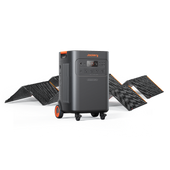



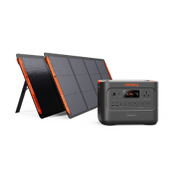












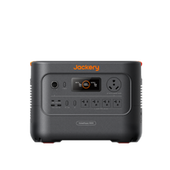










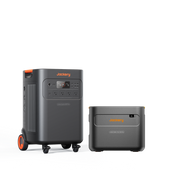
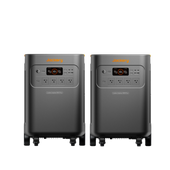
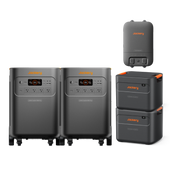





![[Add - on] Jackery Manual Transfer Switch for Explorer 5000 Plus - Jackery](http://www.jackery.com/cdn/shop/files/add-on-jackery-manual-transfer-switch-for-explorer-5000-plus-9017324.png?v=1754016782&width=170)
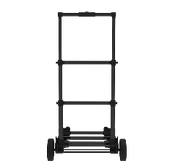
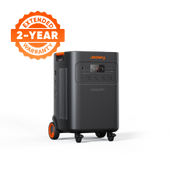
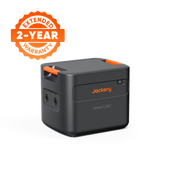
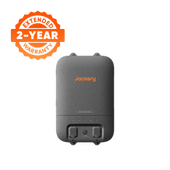

































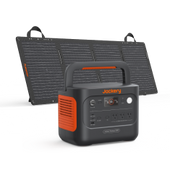
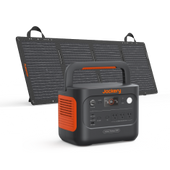


















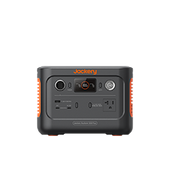


















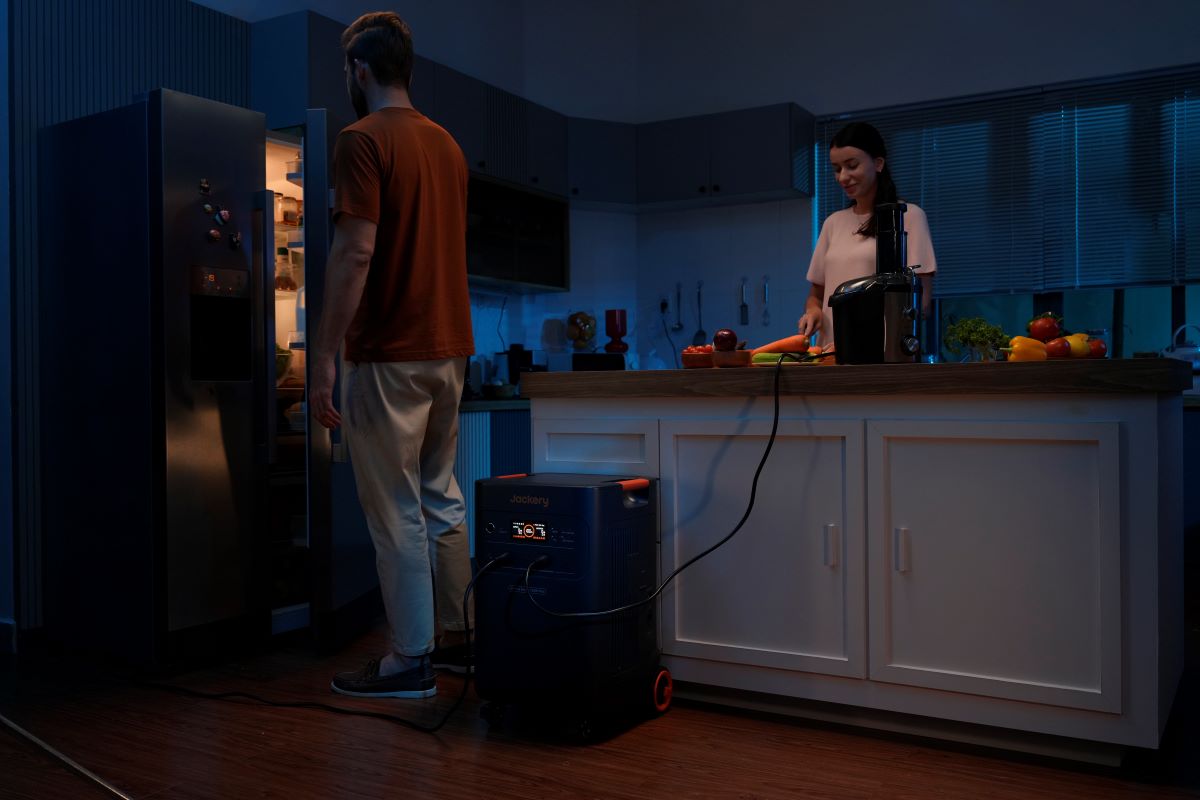



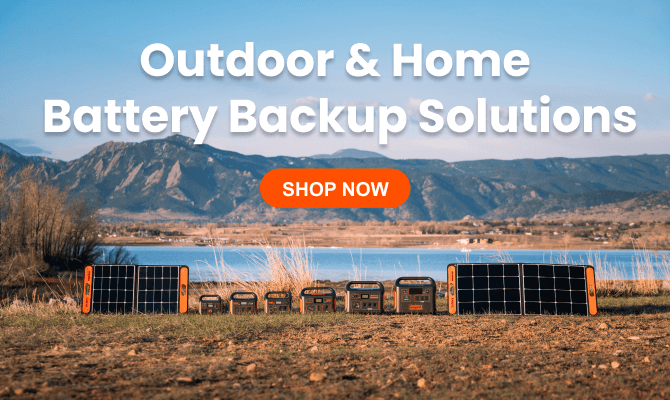



Leave a comment